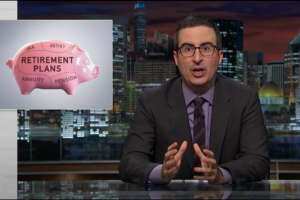There are two basic types or retirement accounts. The first is the tax-deferred type. This is your traditional 401(k) or traditional IRA. Money that goes in is pre-tax or tax-deductible, the funds grow tax-deferred, and then you pay income taxes on the distributions in retirement (after age 591/2).
The second kind are the tax-free Roth-type IRAs and 401(k)s. You put your after-tax money in them, and like the traditional accounts money grows unfettered by the burdens of taxes on capital gains, dividends, and interest. When it comes out in retirement in does so tax-free. Double tax-advantaged. Pretty sweet. Roths are a great complement to the traditional type, because they give you more control over your tax liability in retirement.
But what if I told you there was something even better? Something that combined the pre-tax advantages of the traditional account with tax-free distributions for certain qualified expenses to be triple tax-advantaged? And that it wasn’t a retirement account at all?
That, my friend, is the Health Savings Account (HSA). The HSA is an investment account that can be paired with an eligible high-deductible health insurance plan (HDHP). For 2020, the IRS allows eligible enrollees and their employers to stash away up to $3,550 into an HSA for self-only HDHPs, and up to $7,100 for family HDHP coverage. Contributions via payroll deductions are not subject to income taxes or FICA taxes.
The money is intended to cover medical expenses that HDHP plans do not, so, similar to a flex-spending account, distributions taken out of the account for qualified medical expenses are not taxed. Unlike a flex-spending account, however, where you have to use it or lose it each year, the HSA rolls over indefinitely. There are also no required minimum distributions (RMD) at 701/2, like with traditional retirement accounts. It’s also portable, so you can take it with you when you change jobs. And the money can be invested in the financial markets for long-term growth.
Distributions taken for non-qualified medical expenses are subject to income tax and a 20% penalty, however this penalty goes away at 65. Still, you can use this money to pay for Medicare premiums, prescription drugs, dental, vision, nursing home, and other qualified medical expenses. Which, when you’re old, well, you know…could be a lot. According to an annual estimate by Fidelity, the average couple retiring today at age 65 will need $280,000 to cover health care and medical costs in retirement—a figure that will likely grow each year.
So the HSA can effectively be used as a retirement account. A very good one, at that. Instead of using it for your ongoing medical expenses from year-to-year, just leave it be and let it compound tax-free. You can save those medical expense receipts over the years, and use them to offset withdrawals decades later. Or simply use it to cover your qualified medical expenses in retirement, again tax-free. And if you are fortunate enough to not have large medical bills at all, it effectively becomes a traditional retirement accounts after age 65, only without the RMDs. Or you could just leave it to your heirs.
Despite the advantages of this strategy, only about 4% of HSA enrollees are actually moving money out of safe investments and into assets with more long-term potential for appreciation. The number of employers offering HSA eligible HDHPs is rising, though, with a 2017 report from United Benefit Advisors showing 24.6% of employer-sponsored plans offering an HSA. As this option becomes available to more people, I believe its popularity will increase.
A high-deductible plan may not be appropriate for everyone, however. If it is an option at your current employer and you would like to discuss the pros and cons in more detail, feel free to reach out.



